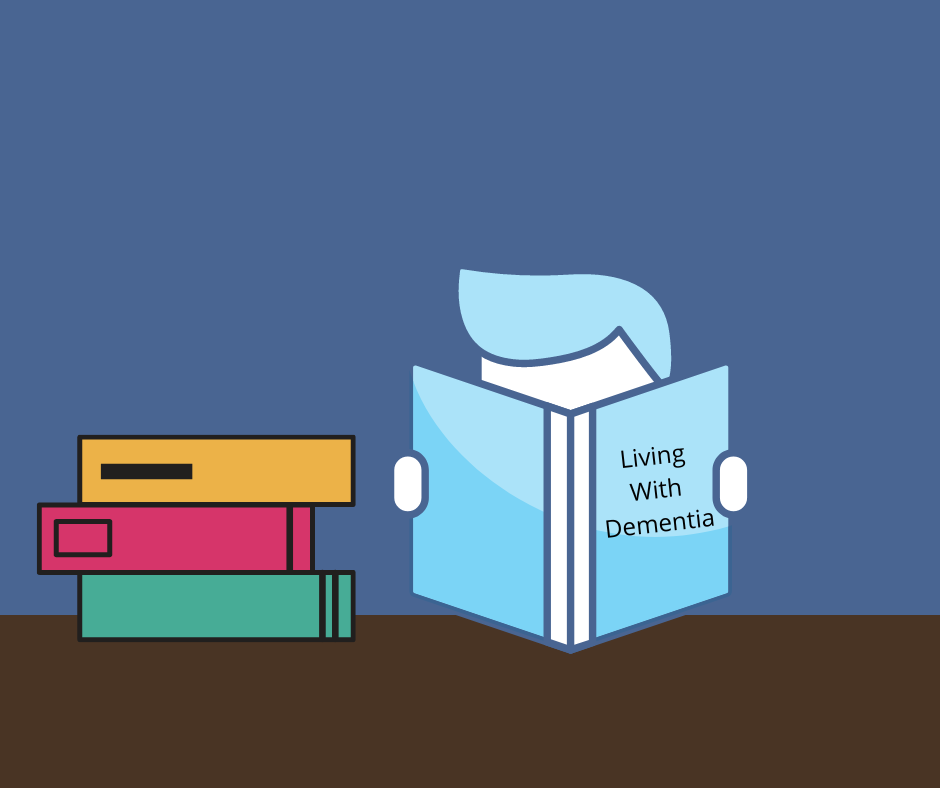Your Parent(s) Have Been Diagnosed With Dementia. Now What?

Step 1: Educate Yourself
As said in G. I. JOE knowing is half the battle. The first and most beneficial thing you can do is learn more about Dementia. There are tons of different sites that have information on Dementia, we suggest you start your search on alz.org or calling the Alzheimer’s association. They have a plethora of information on Dementia and Alzheimer's and can direct you toward local resources. Though often used in replacement of each other, Dementia is as defined by ALZ.org “a general term for symptoms like decline in memory, reasoning or other thinking skills” where Alzheimer’s “is a specific brain disease that accounts for 60-80% of dementia cases” (1). Familiarizing yourself with the symptoms of dementia will make you more prepared for the changes your parents may have in the future. These include cognitive changes such as memory loss, difficulty communicating, difficulty handling complex tasks or problem-solving. These changes also include psychological changes such as the development of depression or anxiety disorders along with feelings of paranoia and auditory or visual hallucinations. Dementia can arise in a patient due to a variety of circumstances, mostly from underlying conditions meaning it can potentially be treated or maintained. Since Alzheimer’s is such a large chunk of dementia cases it is also important to know about the three stages of Alzheimer’s. The first stage of Alzheimer’s is more mild. Symptoms are not always apparent in this stage but aften difficulty remembering right words or names. Forgetfulness of items and materials are also common, along with an inability to solve complex problems or planning. The second stage is moderate in symptoms. Middle-stage Alzheimer’s can last for many years and is the largest stage. Symptoms for Middle-Stage often include being forgetful of events or personal history (such as a significant other passing), withdrawal from socially or mentally challenging situations, difficulty controlling toileting, and increased tendency to wander and become lost. The last stage is more severe. Late stage dementia typically has symptoms including loss of awareness of recent experiences or surroundings, difficult communicating, and changes in physical abilities.
Step 2: Create an Advance Care Plan
Creating an Advance Care Plan is a plan that most older adults should create regardless of ability or level of health. It can be a vital tool in an aging adult's health care needs, both current and future. This is especially true for older adults that have been diagnosed with Alzheiemr’s or other progressive diseases. The CDC defines an advance care plan as “doing what you can to ensure that your wishes and preferences are consistent with the health care treatment you might receive if you were unable to speak for yourself or make your own decisions” which can be a very broad definition (2). There are tons of articles on the subject, including from the CDC and National Institute on Aging. There are formal ways of documenting your loved ones' wishes noted on both. This advance care plan should include things such as future medical wishes, who will be the Power of Attorney, whether they would like CPR or not if they go unconscious, and funeral processions. A legal form for assigning who will be incharge of a loved ones medical decisions, financial decisions, or both is called a durable power of attorney (DPOA). This person is referred to as an agent. They should be someone who knows your loved one well, lives close by, and knows their values. Make sure to pick someone who will carry out your aging loved one’s wishes and is not afraid to speak up for them. Though a group to make these decisions may seem like a good idea, it can lead to lots of arguments so an individual is preferable. This DPOA may need to say yes or no to treatments or medical tests not currently planned out or discussed. They may also be incharge of deciding who will care for a loved one and where care will be given. Another document for advanced care planning is a living will. This is a form that lets you choose life-sustaining treatments if you are dying or are permanently unconscious. If your loved one chooses to be an organ donor they should have such documents signed and filed. Some states even have it right on a driver’s license. Another common form is a DNR (Do Not Resuscitate) Order. This is a form that informs healthcare staff to not use CPR if a loved one's heart stops beating or breathing stops. A final common form is a POLST (Physician Orders for Life-Sustaining Treatment). This form tells healthcare staff which treatments a loved one does or does not want when they are seriously ill. However not everyone with an advance directive needs a POLST, these are for if someone is very seriously ill.
Step 3: Create a Support Network
This is a vital step for both you and your loved one. Support networks are more than just a loved ones medical team, they can include family, neighbors, friends, and more. A medical support network is vital to a loved one’s care as they age or their dementia worsens. Open lines of communication should be created by your loved ones doctor(s), direct care staff, and others involved in your loved one’s medical treatment. In order to establish these open channels it may be required that your loved one fill out an authorization to release patient information. An important part of a support network can be your respite plan. Respite care is a planned or emergency short-term break for caregivers. Respite care is a great way to be able to take a break from caring from your loved one. It also is a great way to avoid caregiver burnout which can greatly impact you and your loved one in the long run. Respite can be a family or friend who comes to relieve you for a few hours, a hired caregiver from a company, or even a short stay in a facility. You should also take the time to set up a support network for yourself. It is vital to have people around you that you can talk to and who will be there to support you mentally throughout this tough journey. Keep in mind that you are not alone and there are tons of people out there that are ready to help and support you. There are even online or in person advocacy groups that you can join and discuss your concerns or experiences with. Many people will offer advice based on their own experiences with caring for a loved one with the disease.
Step 4: Be Patient and Flexible as You Adjust
Acceptance of the diagnosis takes some time and so does adjusting to all the changes dementia brings. You should give yourself and your loved one some time to process the diagnosis as an important first step. How people cope with the diagnosis can be completely different from person to person, there is no right approach and some days are going to be more difficult than others. However, patience, flexibility and open communication can aid in the process and provide comfort to the loved one with the disease, letting them know they do not have to face their diagnosis alone. It is important, in the early stage, to let your loved one come to terms with their diagnosis. This includes giving them time to feel sad about how their life will change due to the diagnosis; however, you should encourage your loved one to speak with a trusted friend or professional counselor to help them with the difficult emotions they may be experiencing. It is also vital that you do not let the diagnosis diminish their value as a parent, grandparent, or even great grandparent. The next step for your loved one is to maintain their sense of self and find purpose. You should take time to discuss with your loved one what brings them meaning and purpose in their life and encourage them to stay involved in activities they enjoy. Another idea is encouraging your loved one to connect with others who are living with dementia to learn what they are doing to cope and adjust. With all of this patience and flexibility is key. Your loved one may get to the point they can no longer do things they used to enjoy or it may take them longer to do tasks than before. You and your loved one will need to be patient and adapt to these changes as they come.
Step 5: Keep Engaging In Activities
A simple way to show support to your loved one is to continue to do activities with them. Something as small as discussing with them about how their day was or what they did today can mean a lot to someone diagnosed with dementia. This is especially still important to do regardless of how their ability to participate in conversations becomes more limited. It is also vital to continue to engage in family activities. It may be more difficult now but your loved one is still a part of the family and often wants to spend time with you all. Sometimes this can be as simple of going on a walk with them or playing a simple board game with them. There are also a variety of different cognitive activities that you can do with your loved one regardless of their diagnosis. These include working on puzzles together (maybe even a custom one of a family photo), crosswords, or online memory games. Having your loved one read a story or even write one can also be a good way to keep their brain active. You could even have your loved one tell you about a family memory or their childhood while you type it up or write it down to look back on at a later time.
Sources:
- Alzheimer's Association. (n.d.). What is dementia? Alzheimer's Disease and Dementia. https://www.alz.org/alzheimers-dementia/what-is-dementia.
- Centers for Disease Control and Prevention. (2018, April 30). Advance care planning and chronic disease management. Centers for Disease Control and Prevention. https://www.cdc.gov/aging/advancecareplanning/index.htm.

Matthew Laming
Client Relations Specialist at GLHCU
Graduate of Northwood University